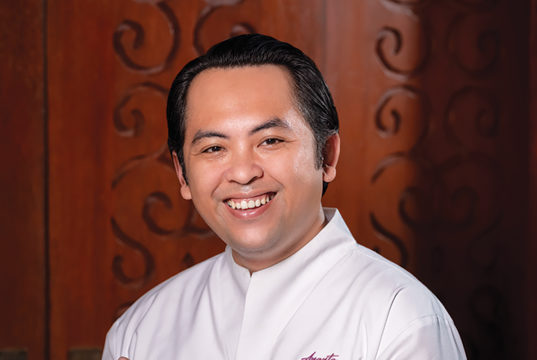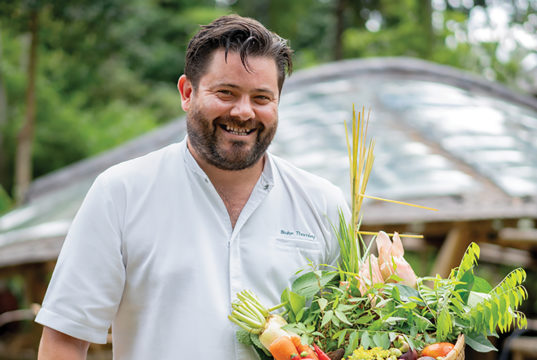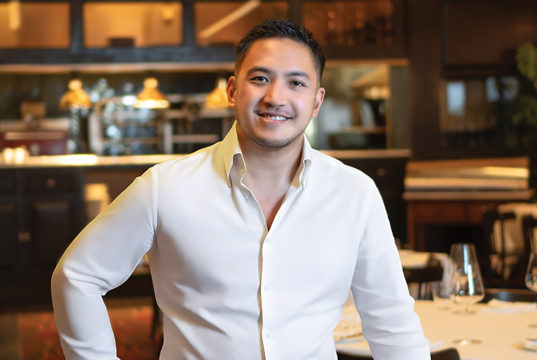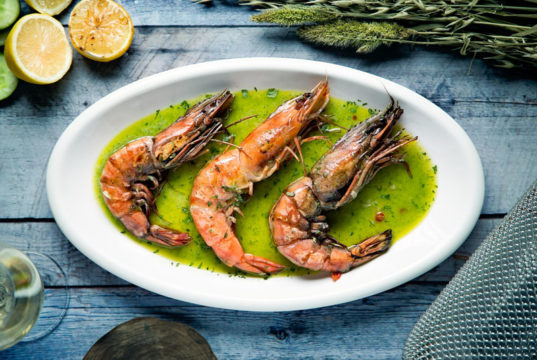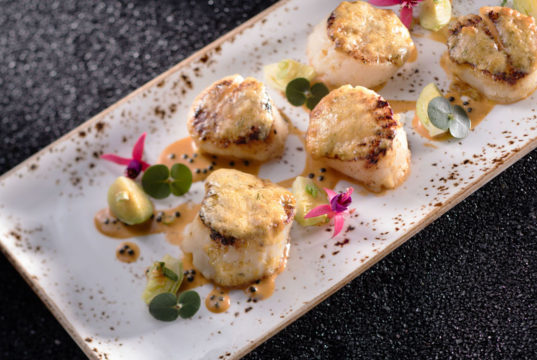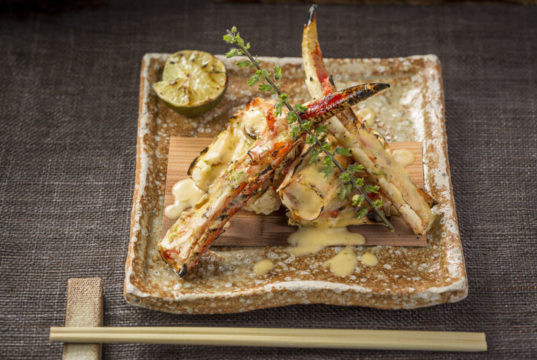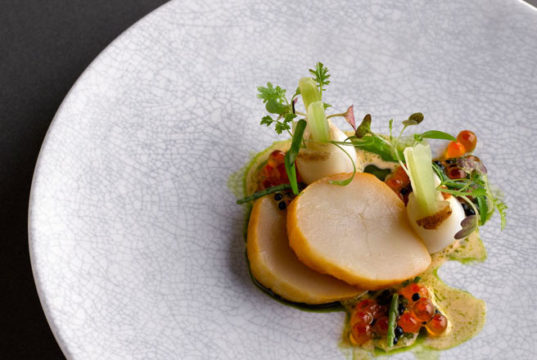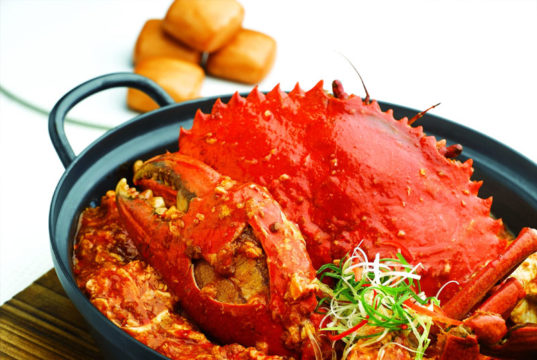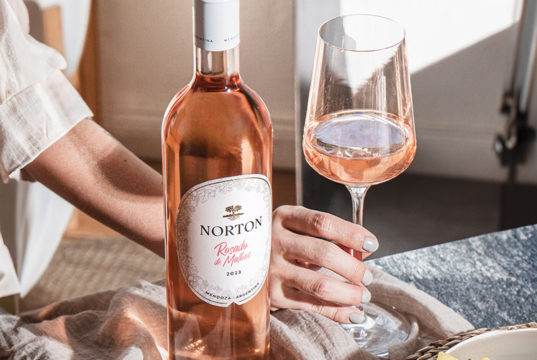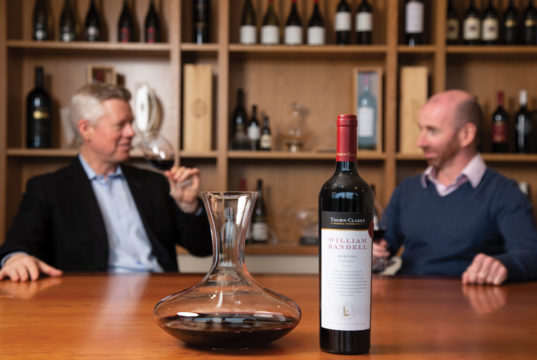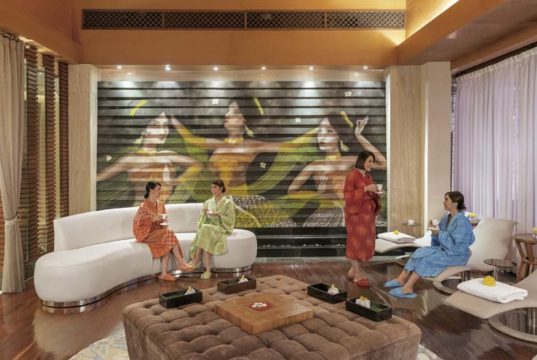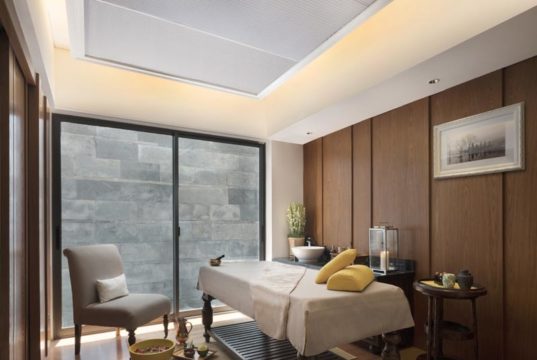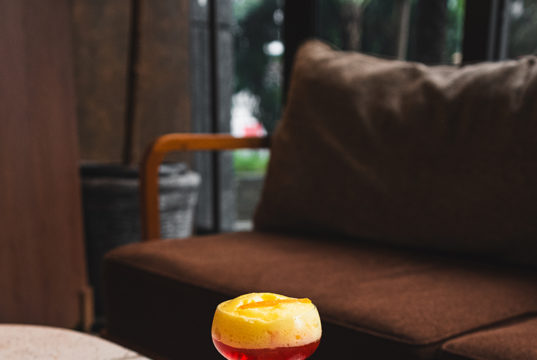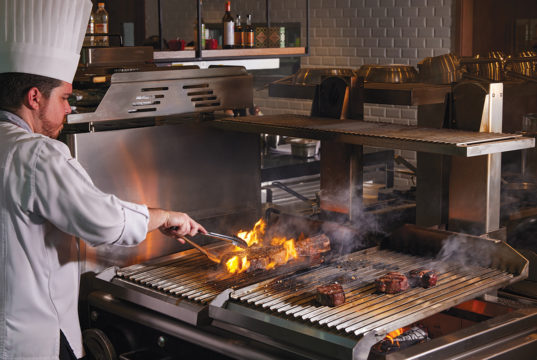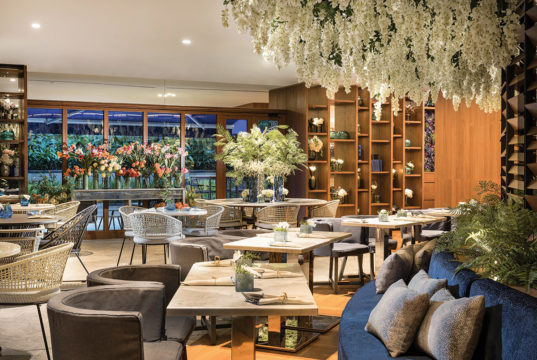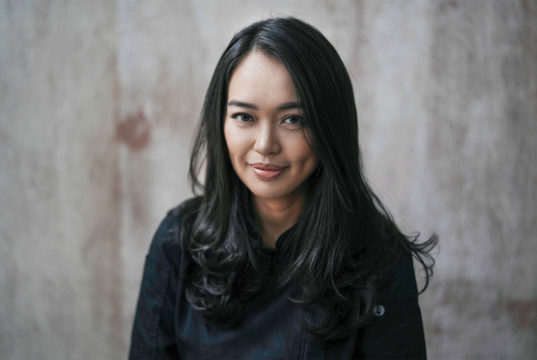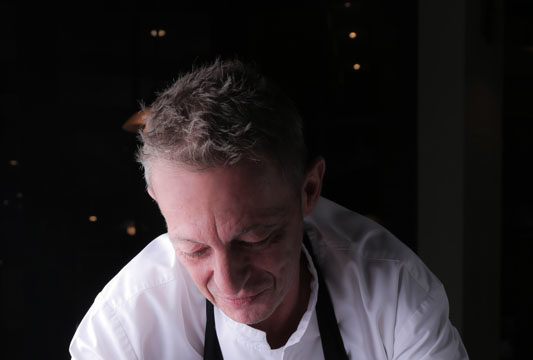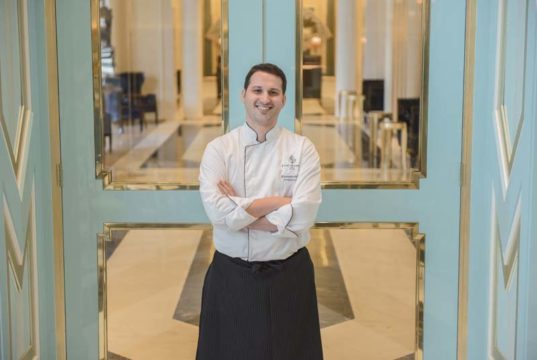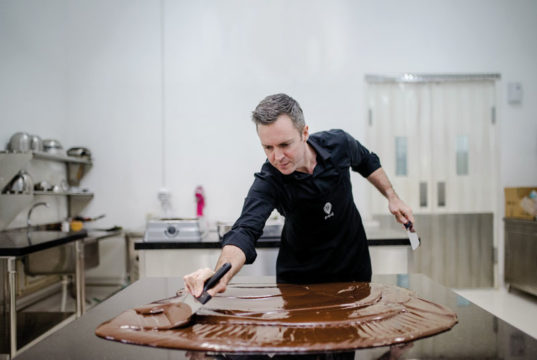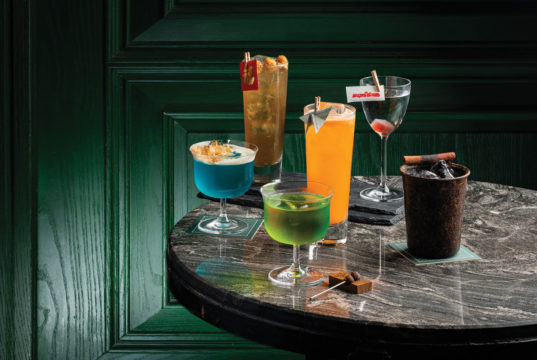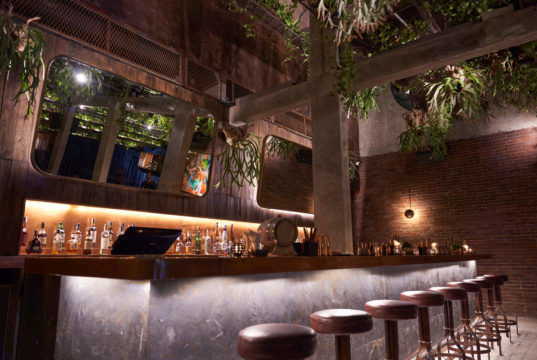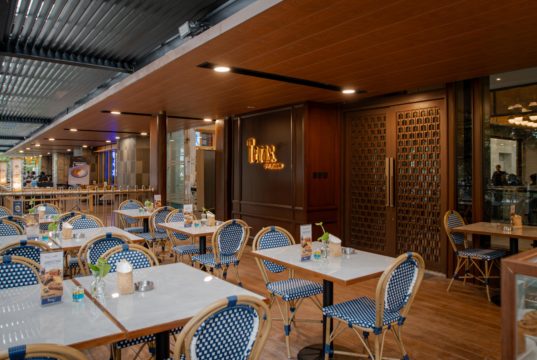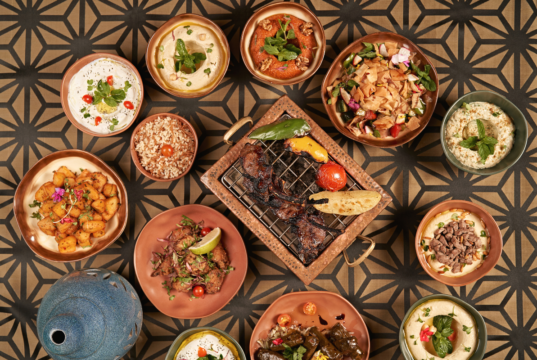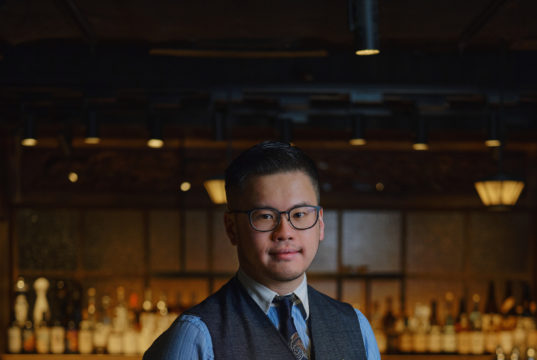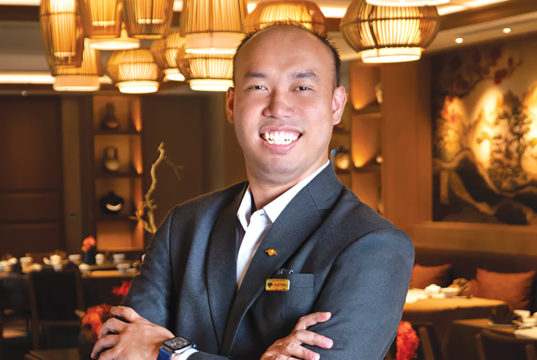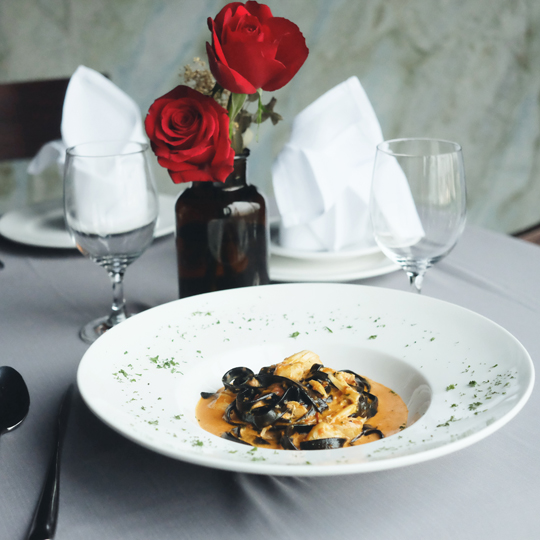Instilling Belief Through Sincere Italian Delicacies.
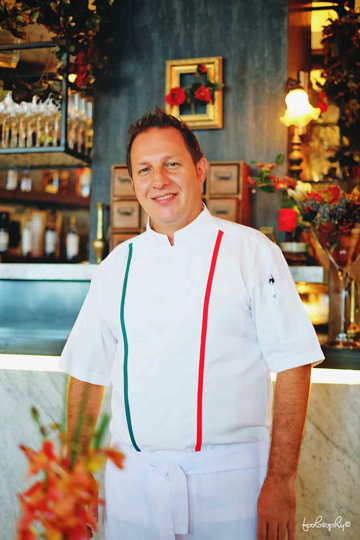 Q: First of all, congratulations on the opening of Valentino here in Jakarta. I love the restaurant’s interior and classic Italian decoration. We’re very glad to have one of Singapore’s best Italian restaurants so close to home. How did you and Mr. Punjabi first come together to realize this partnership?
Q: First of all, congratulations on the opening of Valentino here in Jakarta. I love the restaurant’s interior and classic Italian decoration. We’re very glad to have one of Singapore’s best Italian restaurants so close to home. How did you and Mr. Punjabi first come together to realize this partnership?
A: Basically he’s been my customer for five or six years. And then around two-and-a-half years ago, we got to talking and Mr. Punjabi told how he’d love to bring Valentino to Jakarta. Back then I didn’t think of it as more than a casual talk between friends, but then in July last year, Manoj and his wife, Shania, actually invited me and my wife to come to Jakarta and have a look at this building where the restaurant would be. So we did that three days later.
We imagined where everything would be and worked out the preliminary terms and conditions right there and then that day. That was July, and in August we started the renovation, and we started operating in January. I would say the entire process was very straightforward and smooth!
Q: How would you explain the core philosophy of Valentino and how it relates to your Italian culinary roots?
A: Food-wise, we focus on high-quality products and cooking in a very simple way that’s not too pretentious. We don’t put all our efforts into making the presentation look nice, but instead on the inside. The taste is what matters most to us. I would describe our philosophy as very Italian, homemade, familial style-cooking honest food from the heart and with plenty of love.
Q: I understand you like to keep the restaurant classic and real family-style. Specifically, how involved is your family in this endeavour?
A: Marco, my cousin, is the permanent head chef here. He’s in charge of the entire kitchen, both technical and otherwise. We also have three other guys who have been with us for more than 10 years. And of course I visit here quite often. My mother is also here right now, and she’s in charge of all the items that are stewed, slow-cooked, basically things that take hours to cook; the stuff that nonnas start to cook in the morning with a very long and meticulous process. This is her forte. Alberto, my brother-in-law, he’s in charge of the floor and building up the team. And my father, of course, supervises all this in general; making sure everything runs smoothly.
Q: Working so closely together, how do you guys handle balancing personal and professional affairs on a day-to-day basis?
A: Everyone is encouraged to speak up. If they see anything wrong anywhere, anyone can just talk about it. Open communication is what we promote. After all, we all have the common goal of pleasing our customers. To this end, everyone plays their part on a professional level.
Q: What do you feel is the most challenging/rewarding aspect of your career right now?
A: The most challenging is probably the daily challenges. There are different challenges every day: facing the customers, suppliers, clients, and other things. However, I find that these challenges have kept me on my toes for years. Always ready and always anticipating whatever problems may occur. So, in a way, I’m thankful for the challenges that I face every day.
And the most rewarding thing is to go to sleep happy. When I see people happy over their meal at my restaurant and they have really had a good time – it just takes my tiredness away. Every time you make somebody happy it just recharges yourself. This is what I strive to achieve every day for my customers.
Q: A lot of your guests here in Jakarta are people who are already regulars of Valentino Singapore. Are there any special distinguishing characteristics guests can expect between the two restaurants?
A: When it comes to food, I think we are 90% there. We are only just beginning, and we just need a little more time fine tuning and to get the last few ingredients exactly right in order to provide consistency with our Singapore restaurant. We are very nearly there.
We definitely listen to feedback as well. Over here, people generally prefer their food to taste stronger, a little bit spicier, stronger aromas and so on. These things we take into consideration as well. It was just the same as when I first moved to Singapore where I also had to adjust to the local palate.
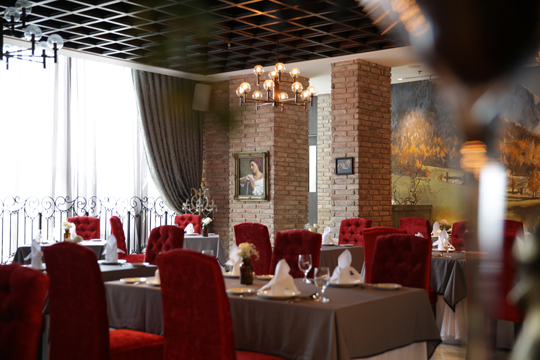 Q: Regarding feedback, what are some of the most memorable/peculiar/funny comments that you’ve heard so far?
Q: Regarding feedback, what are some of the most memorable/peculiar/funny comments that you’ve heard so far?
Quite a lot of people ask me why I don’t make an Italian version of laksa. I just joke along. At the end of the day we are an Italian establishment. The saltiness, sweetness and spiciness we can adjust as long as what comes out is an Italian dish. If you ask me to do Italian curry spaghetti, I’m sorry, but my heart is just not strong enough to try that, you know?
Q: How challenging is it in Jakarta to get the right ingredients you need and how do you work around that?
It’s how much energy you put into getting what you want and finding what you want. For me, nothing is impossible. We can get anything we need given enough time, effort and patience.
Q: I see you’ve integrated very well into living in Asia, and Singapore in particular, marrying your beautiful wife Patricia, a Singaporean, and living there for well over a decade now. Would you say your cooking style is also influenced by the many Asian cuisines you’ve seen and tasted?
A: Yes, maybe not so much influenced, but definitely adjusted. I have friends who tell me Italian food in Italy tastes nothing special, at least not that special compared to what we are offering. Not to toot my own horn, but this is true. In Italy you find a lot of things are imported and even the ingredients are mass-produced in factories. What I like is delicate Italian food. Fresh, honest to its identity and really feeling like home; perhaps these are the qualities missing in a lot of Italian restaurants these days.
Q: What’s your take on the current state of the fine-dining scene in Jakarta as well as in Southeast Asia?
A: I find that Jakarta now is like Singapore 18 years ago. You didn’t find many Italian restaurants in Singapore, not to mention any good ones. But now there are so many Italian restaurants and they are mostly good or improving. In 10 years’ time or less Jakarta will have many, many more good quality fine-dining restaurants.
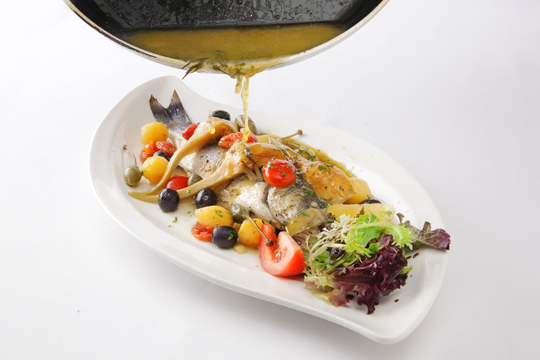 Q: What are some of the upcoming culinary trends you see in the region and beyond?
Q: What are some of the upcoming culinary trends you see in the region and beyond?
A: Hmm, let me see. I don’t really follow the very latest trends. I prefer to focus on what I’m doing and keep improving. Better yet, I prefer to set the trend rather than follow the trends.
Q: What do you do to unwind?
A: I love the social aspect of what I do. I think it’s more than just work. Sometimes I keep my customers longer because we get to talking over wine or coffee. I think there’s a lot I can learn from anyone visiting, and, of course, with my family as well.
Q: What kind of food do you like to eat outside of work?
A: I love Japanese food, particularly sashimi.
Q: What advice can you offer to budding chefs/restaurateurs trying to make their mark in Asia’s highly competitive culinary scene?
A: I should probably warn them that it’s a standing long-hour job. But when you bond and you believe that you want to be a chef, you will start to feel a certain satisfaction when you see your dish or product come out very fine and enjoyed by your customers. One of the most important things to have also is product knowledge. Understand your passion, your trade, your customers, and your product.
FETTUCINE GRANCIO
Ingredients
10 ml olive oil.
3 g minced garlic.
1 g chilli padi.
40 g crab meat.
150 ml cream.
70 g homemade tomato sauce.
2 g parsley.
110 g homemade squid ink fettuccine.
Salt and pepper to taste.
Preparation
Sautee minced garlic and chili.
Sautee crab meat with garlic and chili.
Add in cream and tomato sauce.
Put in seasoning, add parsley.
Put in pasta and mix, add some more seasoning.
Serve; best enjoyed fresh.


